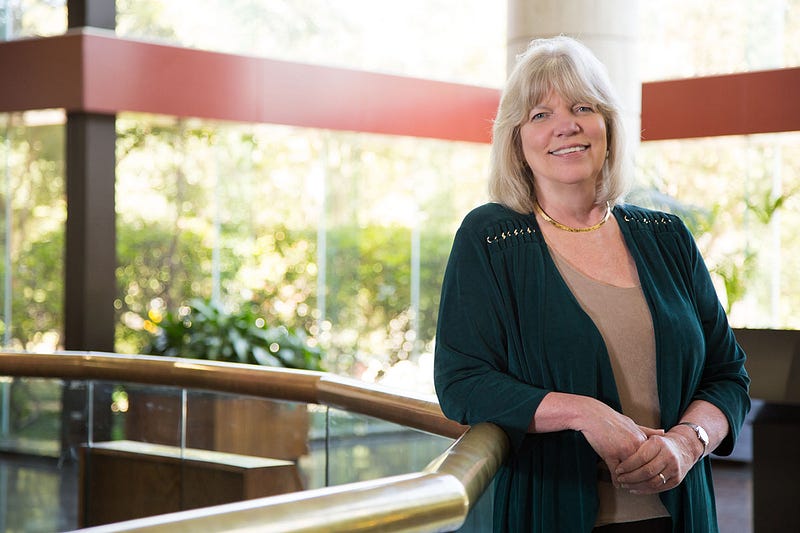Laura Starks Garners Top Honors in Sustainable Finance
Research on environmental, social, and governance issues in investing earns international attention for UT McCombs School of Business finance professor

Two of sustainable finance’s most coveted global research awards — the Skandia Award and the Moskowitz Prize — have recently gone to Laura Starks, University of Texas at Austin McCombs School of Business professor of finance and George Kozmetsky Centennial Distinguished University Chair.
Starks accepted the 2022 Skandia Research Award on Long-Term Savings during her seminar, “Environmental, Social, and Governance Investing: Opportunities and Challenges,” at the Swedish House of Finance in Stockholm Oct. 13. Bestowed by the Thule Foundation, a division of Swedish life insurance company Skandia, the prize supports research on how long-term savings contribute to a sustainable society.
She also recently garnered the annual Moskowitz Prize, the premier global prize for research in sustainable finance, from the Kellogg School of Management at Northwestern University. President of the American Finance Association, Starks conducts research addressing a variety of ESG issues, including climate finance and board diversity.
The Moskowitz Prize recognized her paper, “Corporate ESG Profiles and Investor Horizons,” which has been cited in 66 published studies to date. Delivering good news to socially responsible firms, the paper was selected as the winner from more than 175 submissions.
Starks and her colleagues, Parth Venkat of the University of Alabama Culverhouse School of Business and Qifei Zhu of the Nanyang Business School, examined patterns of investing in companies high in metrics of environmental, social responsibility, and governance (ESG), finding these high-ESG companies are most appealing to long-term institutional investors.
“We wanted to understand if there were certain types of investors recognizing the value of ESG,” Starks said. “We hypothesized that the institutional investors with longer-term investing horizons will be more interested in high-ESG firms and more patient with high-ESG firms that have poor returns or earnings shortfalls — they will give them more slack.”
As predicted, multiple analyses of investor portfolios found that institutional investors, including pension funds and mutual funds, are more likely to invest in high-ESG firms than investors with a short-term view. Similarly, longer-horizon investors held on to the firms’ stock longer than those of low-ESG firms with similar performance.
The findings are encouraging for ESG-focused businesses, Starks said. “There’s a belief that firms prefer longer-term investors because their stock price doesn’t get affected by small events; there’s not as much volatility,” she said. “So to get these investors you should improve your ESG, which is good for society overall.”
Kellogg chair and professor of finance Ravi Jagannathan, one of the Moskowitz Prize judges this year, agreed. “If long-term investors are getting into ESG issues in a big way while making portfolio-choice decisions, that means the trend is here to stay. It is not a passing fad.”
Moskowitz Prize judge Lloyd Kurtz said, “Most of the things ESG investors care about like climate change tend to have long time horizons. So, Starks and her team show that companies with stronger ESG performance are preferred by investors with longer time horizons, which ties together debates about whether long-termism is good and ESG is good.
“The research shows that institutional investors are placing a bet that ESG provides significant clues to a firm’s sustainability of operations and economic success,” Kurtz said.
Megan Kashner, Kellogg’s director of social impact, is pleased to see long-time researcher and field leader Starks recognized for her contributions. “We know the value that Laura Starks brings to the field of sustainable finance as a whole,” she said. “Laura has written pioneering research in this area for many years, has mentored researchers in the field, and collaborates across the sector to advance sustainable finance and ESG leadership globally. It’s a pleasure to celebrate her work.”
Starks said she’s grateful to organizations that support this important work. “I’m deeply honored to receive these awards, which represent an international movement to better understand the intersection of investing and ESG issues,” she said. “There’s so much groundbreaking work being done in this field, and it’s an exciting time to be a part of it.”
About this Post
Share:


